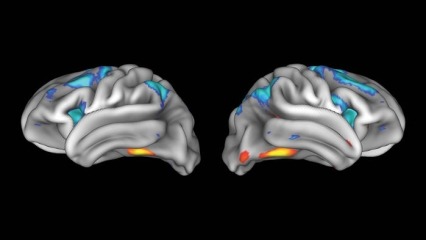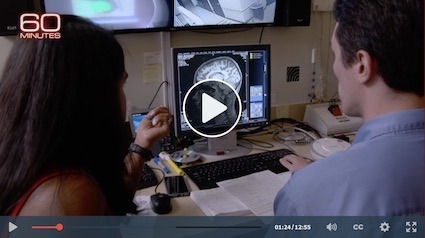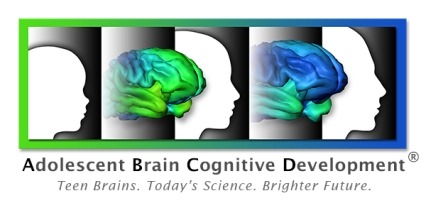
What Is the Adolescent Brain Cognitive Development Study (ABCD Study®)?
ABCD is a landmark study on brain development and child health supported by the National Institutes of Health (NIH). This project will increase our understanding of environmental, social, genetic, and other biological factors that affect brain and cognitive development and that can enhance or disrupt a young person’s life trajectory.
For an overview of how the ABCD study got started, see article co-authored by NIDA Director Dr. Nora Volkow, NIAAA Director Dr. George Koob, NINDS Director Dr. Walter Koroshetz, and other NIH scientists: The conception of the ABCD study: From substance use to a broad NIH collaboration, published in Developmental Cognitive Neuroscience.
For more information, please visit https://abcdstudy.org.
Landmark study of adolescent brain development renews for additional seven years
With nearly $290M of new funding for seven years to research institutions around the country, the National Institutes of Health renewed its commitment to the Adolescent Brain Cognitive Development Study (ABCD Study®) the largest long-term study of brain development and child health ever conducted in the United States.
“The next phase of the ABCD study will help us understand the effects of substance use, as well as environmental, social, genetic, and other biological factors on the developing adolescent brain,” said NIDA Director Nora D. Volkow, M.D. “Since the participants are now in their vulnerable middle school years or are beginning high school, this is a critical time to learn more about what enhances or disrupts a young person’s life trajectory.”
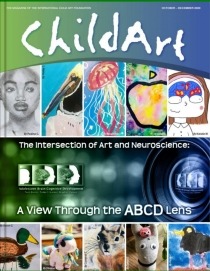
ChildArt ABCD Issue
This special issue of ChildArt introduces the intersection of the arts and neuroscience through an overview of the ABCD Study®. It presents some of the data from the study, as well as other research looking at the impact of the arts on child development. The issue combines the work of experts in neuroscience, world renowned artists, specialists in child development, and others. Topics covered include the juncture between the arts and human culture, the developing adolescent brain, the interaction between cultural and biological processes and artistic creation, the interface of the arts and science as a multisensory experience, insights from the neuroscience of dance and music, and more. We hope that this special issue will stimulate creativity and innovation in research on the impact of the arts on child development as well as encourage researchers to leverage the ABCD Study data to advance research on a wide range of other topics.
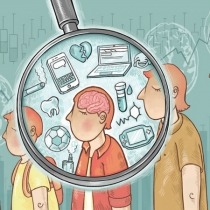
Podcast: With Neuroimaging, Large NIH Study Could Shine a Light on the Adolescent Brain
JAMA, August 14, 2019: Audio 25 min 18 sec
In this Medical News podcast, Jennifer Abbasi interviews the director of the ABCD study, Gaya Dowling, PhD, about this long-term study of brain development and child health in the United States.
Science Magazine, January 3, 2018 Huge study of teen brains could reveal roots of mental illness, impacts of drug abuse
CBS - 60 Minutes, December 9th, 2018
Please note: The ABCD study is assessing brain development in children throughout adolescence, while tracking social, behavioral, physical and environmental factors that may affect brain development and other health outcomes. Screen time is only one of many measures evaluated as part of the study protocol.
- Watch video (12:55)
- For additional articles about the ABCD study, visit https://abcdstudy.org/news/
Study Enrollment Completed
ABCD Study Enrollment has completed as of 10/21/18 - The total enrollment stands at 11,880.
How Will the ABCD Study® Be Implemented?
Unique in its scope and duration, the ABCD study will:
- Recruit 11,900 healthy children, ages 9 to 10 across the United States, with the goal of retaining 10,000 into early adulthood.
- Use advanced brain imaging to observe brain growth with unprecedented precision.
- Examine how biology and environment interact and relate to developmental outcomes such as physical health, mental health, and life achievements including academic success.
Why Do We Need the ABCD Study®?
Adolescence is a period of dramatic brain development in which children are exposed to all sorts of experiences. Yet, our understanding of precisely how these experiences interact with each other and a child’s biology to affect brain development and, ultimately, social, behavioral, health, and other outcomes, is still incomplete. As the only study of its kind, the ABCD study will yield critical insights into the foundational aspects of adolescence that shape a person’s future.
What Will We Learn from the ABCD Study®?
The size and scope of the study will allow scientists to:
- Identify individual developmental trajectories (e.g., brain, cognitive, emotional, academic) and the factors that can affect them.
- Understand the role of genetic vs. environmental factors on development.
- Examine the effects of physical activity, screen time, and sleep, as well as sports and other injuries, on brain development and other outcomes.
- Study the onset and progression of mental disorders.
- Determine how exposure to substances (e.g., alcohol, marijuana, nicotine, caffeine) and new ways of taking them (e.g., vaping, dabbing) affect developmental outcomes and vice versa.
- Understand the impact of changing state and local policies and laws (e.g., marijuana, tobacco, alcohol) on youth drug use and related health and development.
Scientific publications authored by ABCD Study investigators, collaborators, and other researchers can be found at https://abcdstudy.org/scientists-publications.html.
Who Is Leading the ABCD Study®?
The ABCD study is led by the Collaborative Research on Addiction at NIH (CRAN):
- National Institute on Drug Abuse (NIDA)
- National Institute on Alcohol Abuse and Alcoholism (NIAAA)
- National Cancer Institute (NCI)
In partnership with:
- Centers for Disease Control and Prevention (CDC)
- Eunice Kennedy Shriver National Institute of Child Health and Human Development (NICHD)
- National Institute of Mental Health (NIMH)
- National Institute of Minority Health and Health Disparities (NIMHD)
- National Institute of Neurological Disorders and Stroke (NINDS)
- NIH Office of Behavioral and Social Sciences Research (OBSSR)
- NIH Office of Research on Women’s Health (ORWH)
For additional information on ABCD, please contact:
Dr. Gaya Dowling, Director, ABCD Project at 301-443-4877 or at AdolescentBrain@mail.nih.gov or visit abcdstudy.org
For more information for researchers, visit: https://www.addictionresearch.nih.gov/abcd-study
Download: Flyer on the ABCD Study (PDF, 2.7MB)

